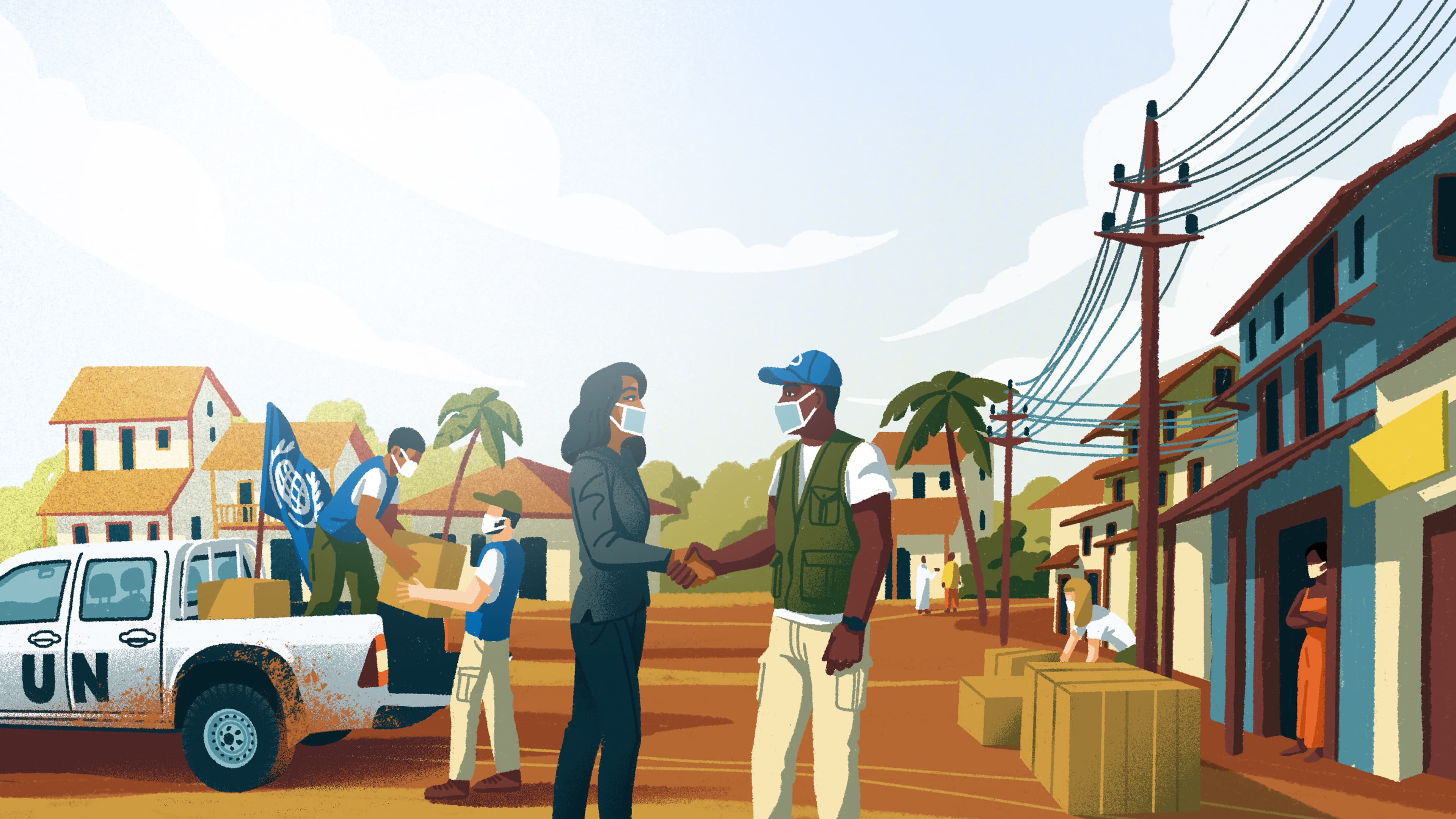
We led programmes and initiatives to empower UN staff and partners to collaborate system-wide to break down silos and foster partnerships with public and private stakeholders.
Amidst the crisis, the College developed learning programmes to support partnership building and collaboration both across the UN and with civil society partners. Courses and initiatives brought together personnel from different UN agencies and partner organizations to provide opportunities for staff to break down silos and work across the UN’s three pillars – human rights, peace and security and development – both internally and in partnership with others to encourage synergies.


UNSSC
rose to the challenge to:
In 2020 the College joined forces with the United Nations Development Coordination Office (DCO) to launch two customized online learning offerings to support the effective implementation of the
A partnership with the
testimonial
UN Emerging Leaders E-Learning (UNEL-e)
“The course has improved my ability to work collaboratively with my other UN agency colleagues, and, in that regard, made me a more confident leader, particularly when working outside of my area of technical expertise.”
- Dr. Rufus Ewing, Country Programme Advisor (Caribbean) at the World Health Organization (WHO

UNSSC
rose to the challenge to:
Collaboration between private- and public-sector entities added valuable new perspectives at the height of the COVID-19 pandemic. In support of UN staff and partners engaging with private sector entities, the College delivered learning on
This was a timely offering as UN entities were seeking to collaborate with different organizations to protect hard-won development gains. Participants were introduced to the different types of private sector entities, and they gained crucial skills on how to strategically engage with them in the implementation of the 2030 Agenda.
Cooperation between local governments and different peace actors is becoming fundamental in peace agreements and national post-conflict peacebuilding agendas. In 2020, the College re-scoped the
The College moved swiftly to advance programmes and initiatives to help UN entities and relevant partners redefine collaboration and support their teams to find solutions in the new normal. The
testimonial
SDG Primer offered through The UN SDG: Learn
“We are taking steps to adapt our programmes, our skillsets, and mindsets to respond to the paradigm shift of the 2030 Agenda. This SDG Primer course aims to strengthen that work. It will help achieve conceptual clarity on the 2030 Agenda and its integrated nature.”
- Amina J. Mohammed, UN Deputy Secretary-General
In 2020, 3,500 people registered for 40